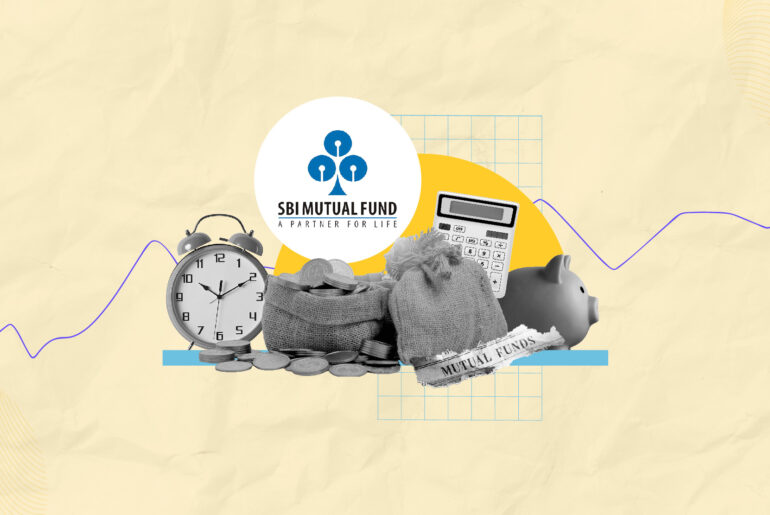Last Updated on May 24, 2022 by Aradhana Gotur
“I try to invest in businesses that are so wonderful that an idiot can run them. Because sooner or later, one will.”― Warren Buffett
How many people can call themselves businessmen with just a Rs 100 investment?
That is the kind of opportunity that the stock market presents. It is a platform where publicly traded shares can be bought and sold to generate profits. Investment in these publicly traded shares and other kinds of shares issued by companies are what are called equity investments. Let’s dive in and understand what is equity investment, what are the types of equity investments and how to invest in equity.
Table of Contents
What is equity?
Shares that are issued by companies as pieces of ownership of that company are called equities. The total amount of equity shares you own represents your stake in the company. The total equity of a company can be calculated by adding up the total assets of the company and reducing the total liabilities.
Although equity investments do not give you regular and fixed returns like bonds and FDs, they do give you voting rights and a claim on assets if the company is liquidated. There are not many assets where people can put in money and expect them to grow while also beating inflation in most of the years.
With rising inflation, your money in the bank account is not enough to fund your retirement. You do not need to read annual reports of hundreds of companies, research every single news article coming up and then regularly monitor each event every day to succeed in investing. Index investing provides you with a much easier path, it might not be as exciting as trading in F&Os or cryptocurrency but it still gives multifold returns. An investment in Nifty on its inception in 1995 would have multiplied your initial investment at a CAGR of 11%, a quicker pace as compared to gold which is India’s favourite asset to hold for the long term.
Types of equities
Now, equities can also be further bifurcated into a few categories and that will shape up how your income grows in the future. The most popular is obviously common stock which people usually refer to as equity shares. It provides you with a degree of ownership as per the number of shares you own, along with this you get involved in management since you get to exercise your voting rights and claim on assets.
If the company does well, these common stockholders are rewarded in form of share appreciation and dividends. In case of dissolution of the company, these stockholders are well protected due to limited liability and any residual income once the debt is cleared.
Preferential shares
This type is comparatively conservative since a predetermined amount of dividend is supposed to be paid and there is no capital appreciation. In case of winding up, the preferred shareholders are paid whatever is owed to them and they have the privilege to be paid before common shareholders. They do not have any voting rights but there is sometimes an offer by the company which enables them to convert to common shares. There is also something referred to as common surplus, this is the excess amount paid by investors over the par value of shares during the issuance of shares.
If shares are valued at par, there is a nil amount under this head. Not all profits of a company are shared with stockholders as dividends and some portion is left for investing in future growth as well, this unused or stored portion of profits is called retained earnings.
Treasury stock
This is the stock that is purchased back by the company in order to reduce outstanding shares in the secondary market. This is also called re-acquired stock.
How to get started with stock selection?
Investing in equities is simpler now as compared to the times when shares were acquired in physical form. Investors and traders now have to open a dematerialization account with a broker and they can start with their journey in the stock markets. While passive investing into indexes like Nifty is a great option, there is a category of investors who would like to exercise greater control on their investments and would also want to invest in the companies they like.
Every sector and industry has its own parameters, however, there are a few basic rules which are common among all multi-bagger scrips. An investor should first understand his risk appetite before getting into the markets. The next step is to always own stocks in industries that you understand, otherwise own simple stocks in non-complexed sectors.
Equity diversification
Another important aspect is, to keep a portfolio diversified while investors should have sufficient investments in equity, it is equally important to also invest in real estate, bonds, gold, and fixed deposits because the volatility is much higher in equities. Even when a person is investing in equity it is important to invest in various sectors and not concentrate your wealth in very few scrips.
- A rational investor should look for companies with honest and experienced top management and ethical corporate governance. It is also important to check the shareholding pattern, whether there is sufficient promoter’s holding, investments by FIIs and DIIs and the level of promoter’s pledge.
- Another crucial factor is the amount of debt; investing in debt-free companies is a much safer way to compound your wealth. An active investor must tune into con-calls, company presentations, look if there is any government decision impacting the company and also regularly monitor the company in case there is an issue related to its top management or if there is a sudden fall or rise in sales.
Types of payouts
There is more to earnings from equity than just dividend payments and capital appreciation, although they are considered primary forms of shareholder remuneration.
- Dividend is distributed from profits earned in the financial period, a portion of this is stored as retained earnings.
- Capital appreciation is the increase in price due to market forces of demand and supply.
- Buyback of shares occurs when companies buy their own shares to reduce the number of tradable shares in the market.
- The next source is the rights issue. Under this, existing shareholders are invited to purchase more shares at a discounted price as compared to the market value.
- The concept of bonus shares occurs when the existing stockholders are given company shares without any additional charges. They are funded through excess reserves and paid instead of dividend payments.
An equity investment in a company, whether it may be in the primary or secondary markets is an act of acquiring ownership in the company. Like any business owner, an equity investor can partake in the business activities of the company in proportion to their stake in the business, earn dividends on profits and sell a part or complete ownership in the company as and when they feel the need to do so.




